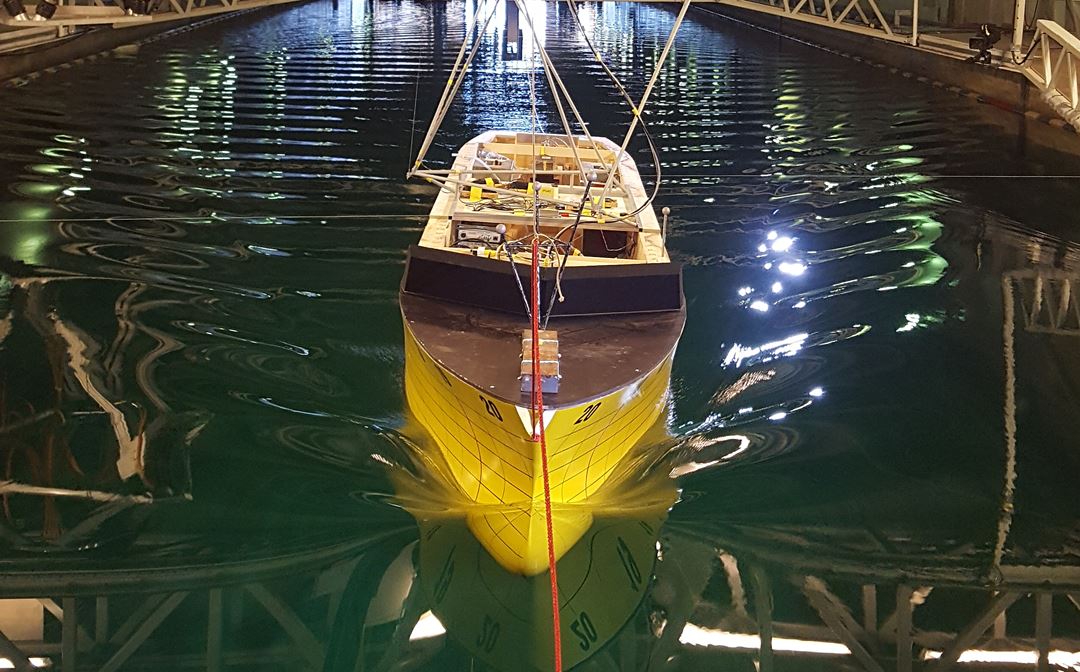National and international governmental bodies have set high goals for reduction of harmful emissions from ships. The International Maritime Organization (IMO) has established the Energy Efficiency Design Index (EEDI) as the major policy measure to reduce greenhouse gas (GHG) emissions from shipping. The EEDI restricts a given vessel to a maximum level of emitted grams of CO2 per ton‐mile. The EEDI requirements could be achieved by simply reducing the installed engine power. Doing so leads to compromises in the ship's ability to maintain manoeuvrability and safety in adverse conditions, due to insufficient propulsive power and steering capabilities.
The ongoing international regulatory work prioritises emission performance in calm water, with a risk of "Green" vessels being sub-optimally designed. Hence, there is an urgent need for additional understanding of the effects on propulsion performance and manoeuvrability in waves. Ship designers need better tools to study these effects, to ensure that future ships are designed for safe operation in realistic sea conditions and with minimum emissions.
The SEAWORTHY project will address these needs by investigating - through interviews and workshops with operators, shipmasters and designers - operational challenges experienced with "Green" vessels. Specific needs for improved software tools, for various design phases and for ship operation, will be identified. Next, based on existing methods and software tools, new and improved tools will be developed and tested by the industry participants. Scale-model experiments and measurements onboard a real vessel in operation will be used to gain insight into relevant physical phenomena and for validation of the software tools.

